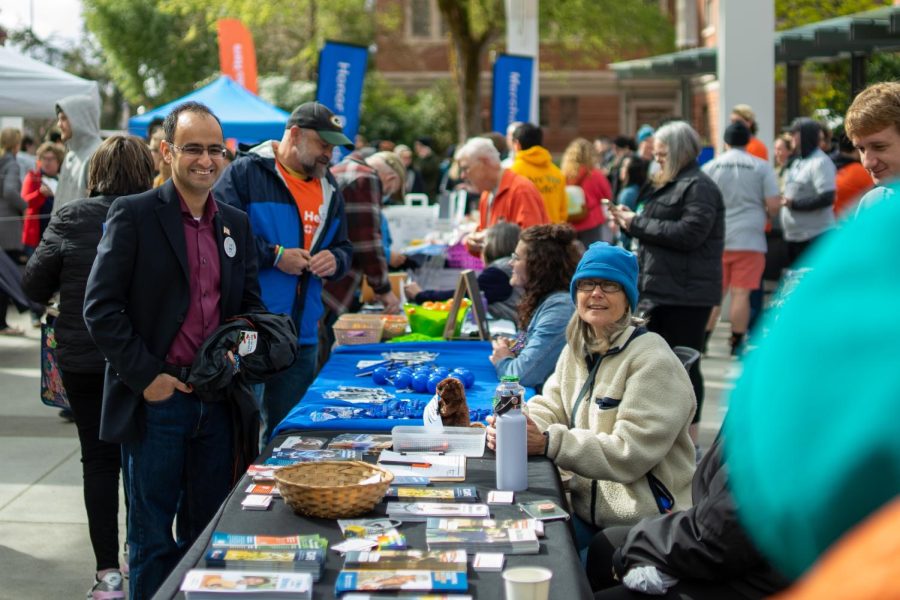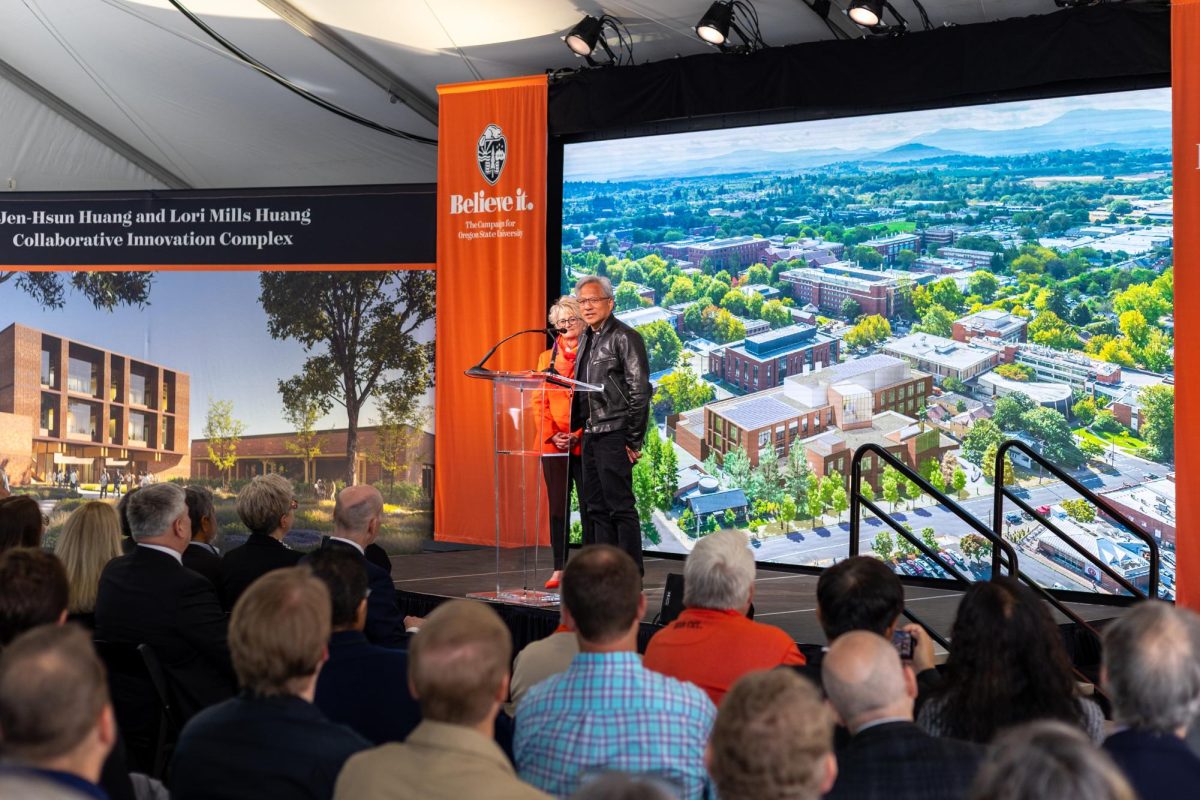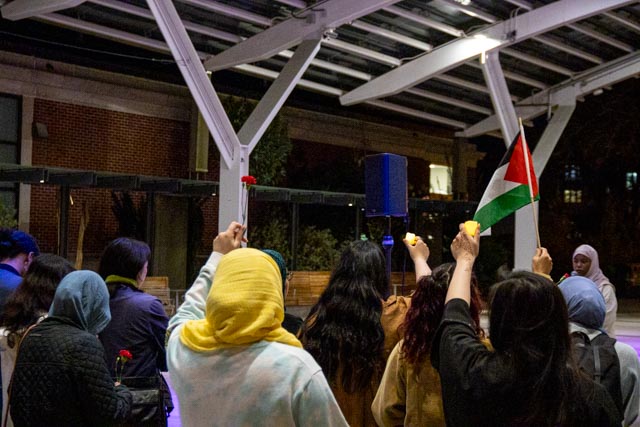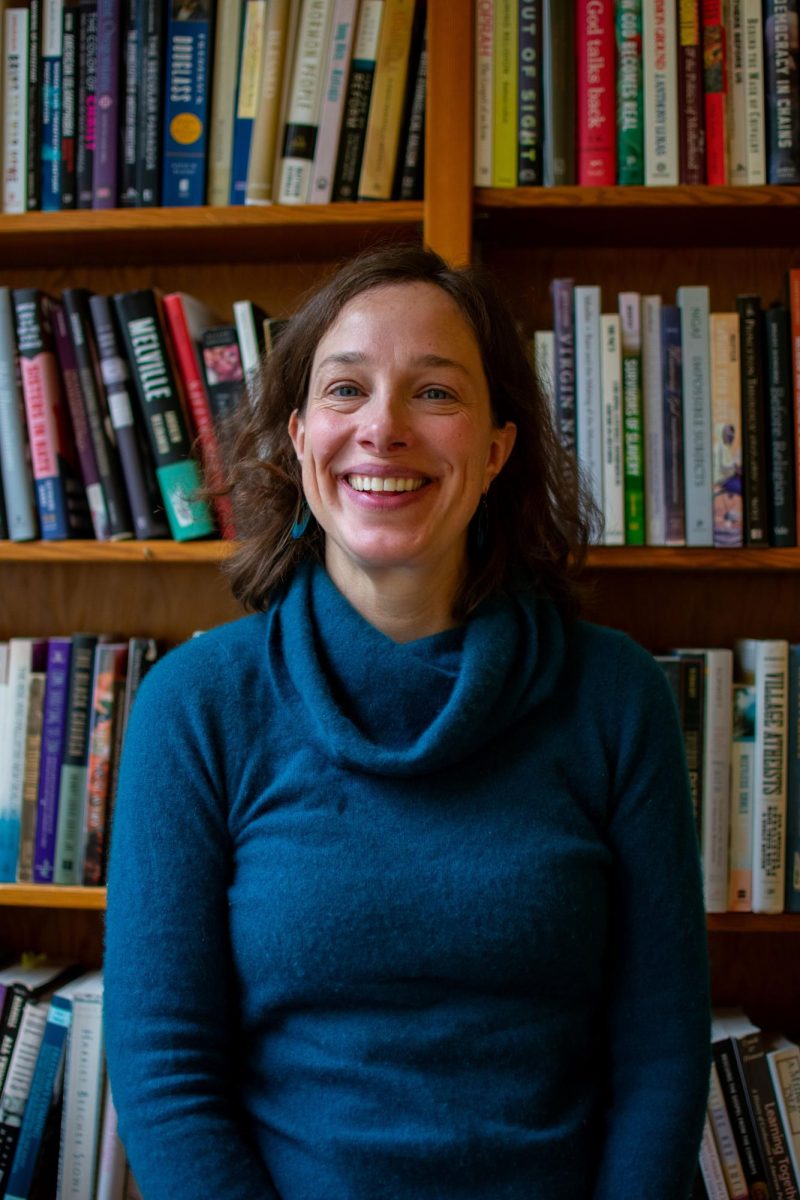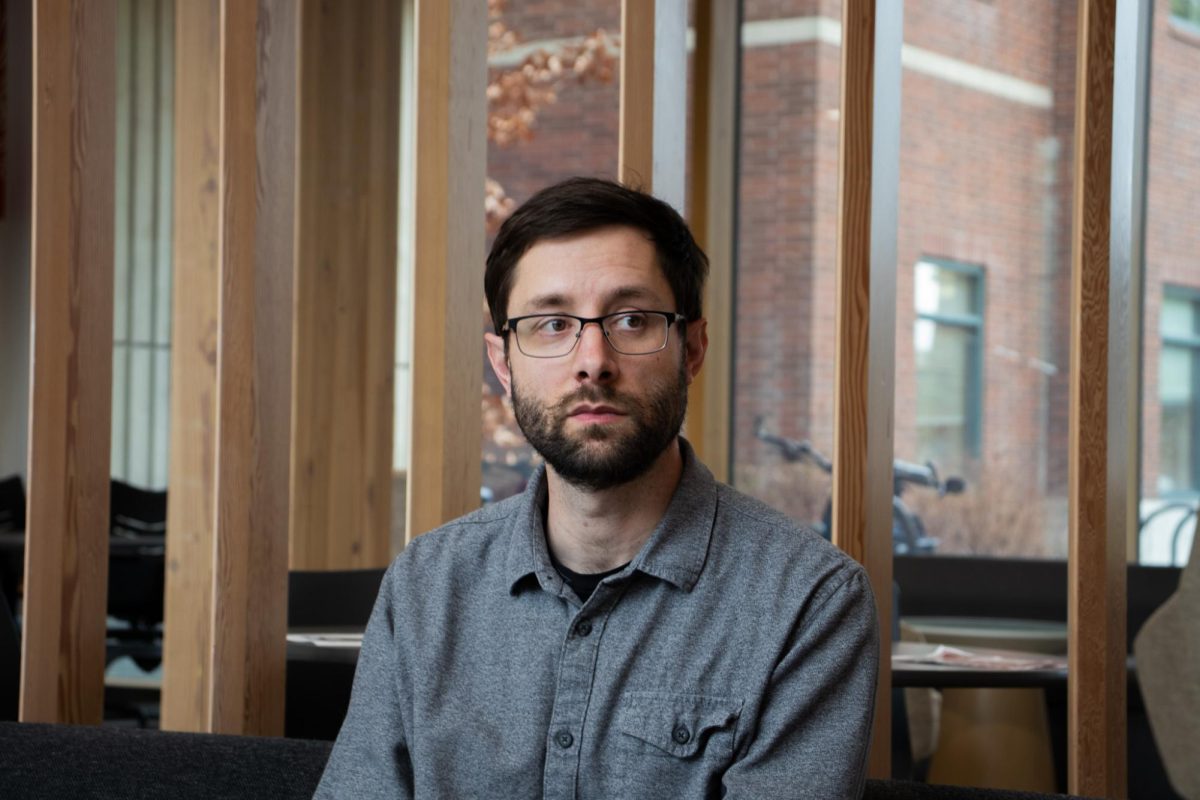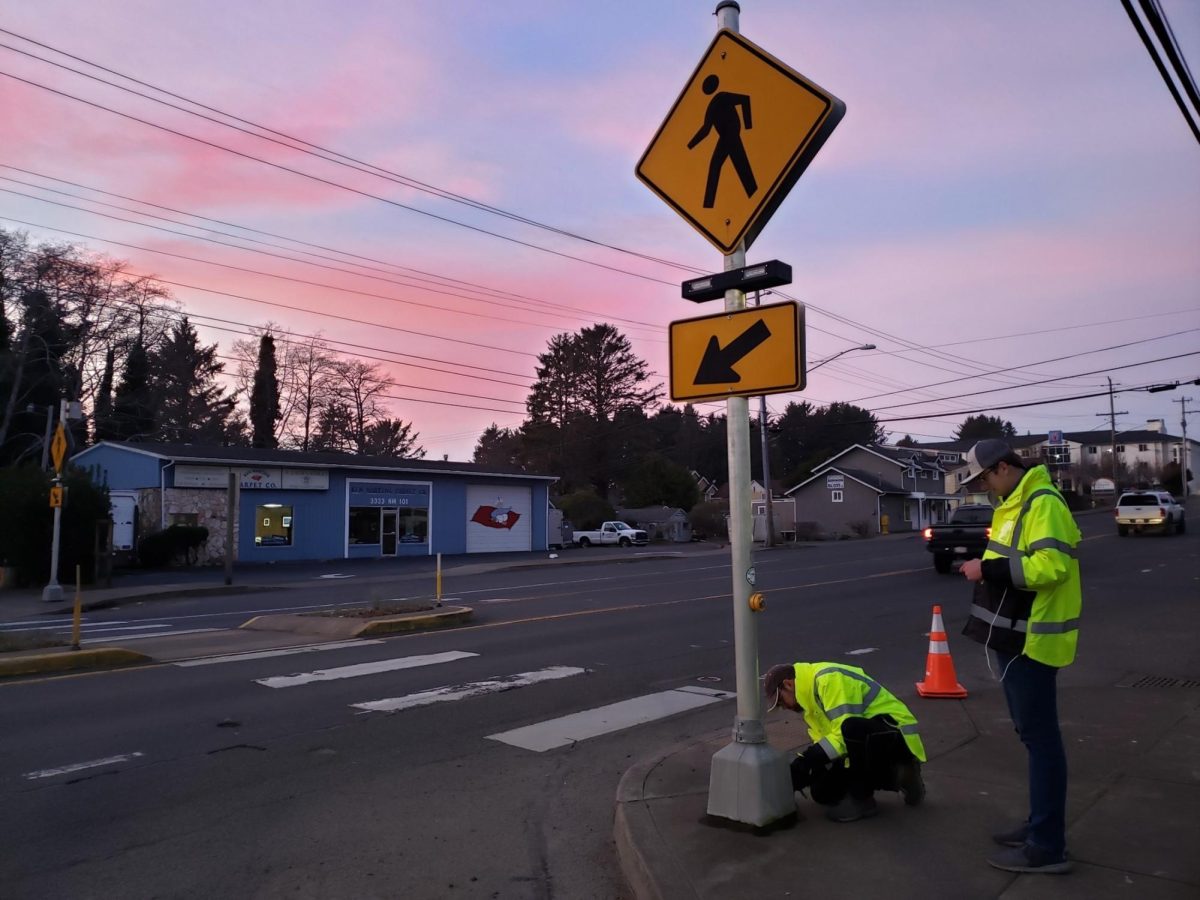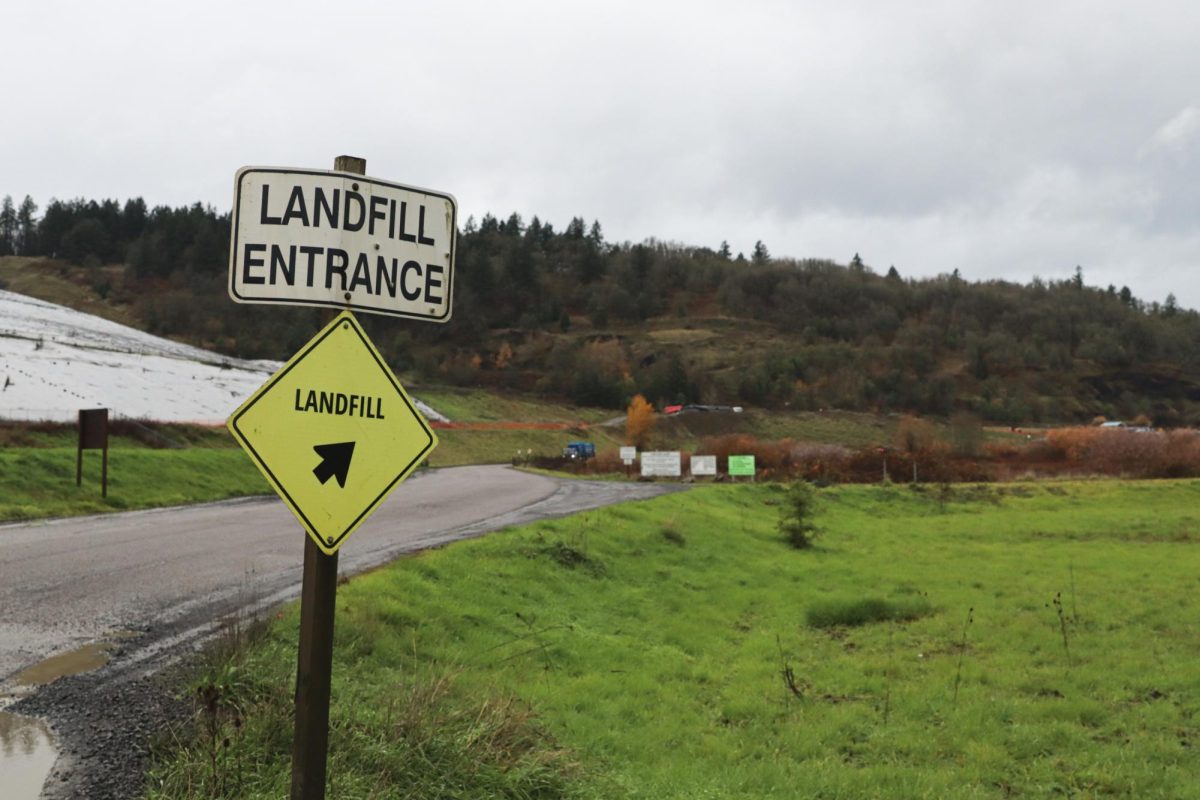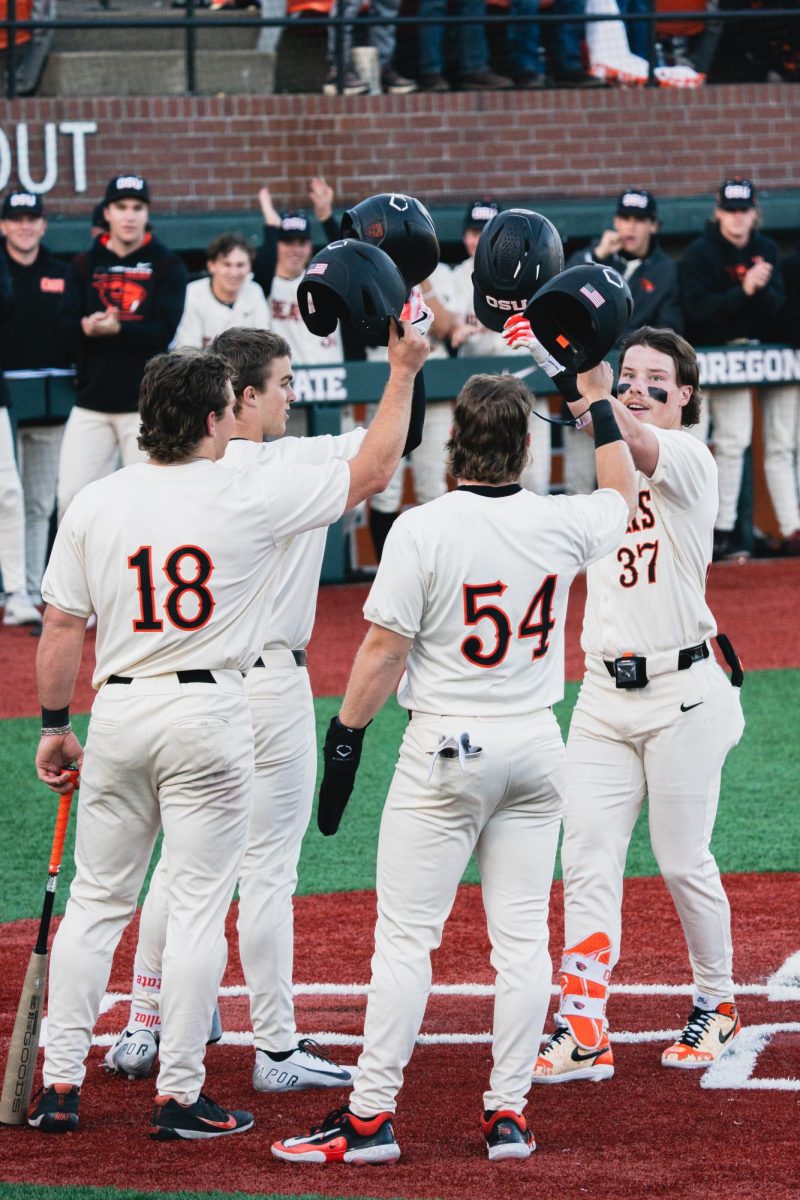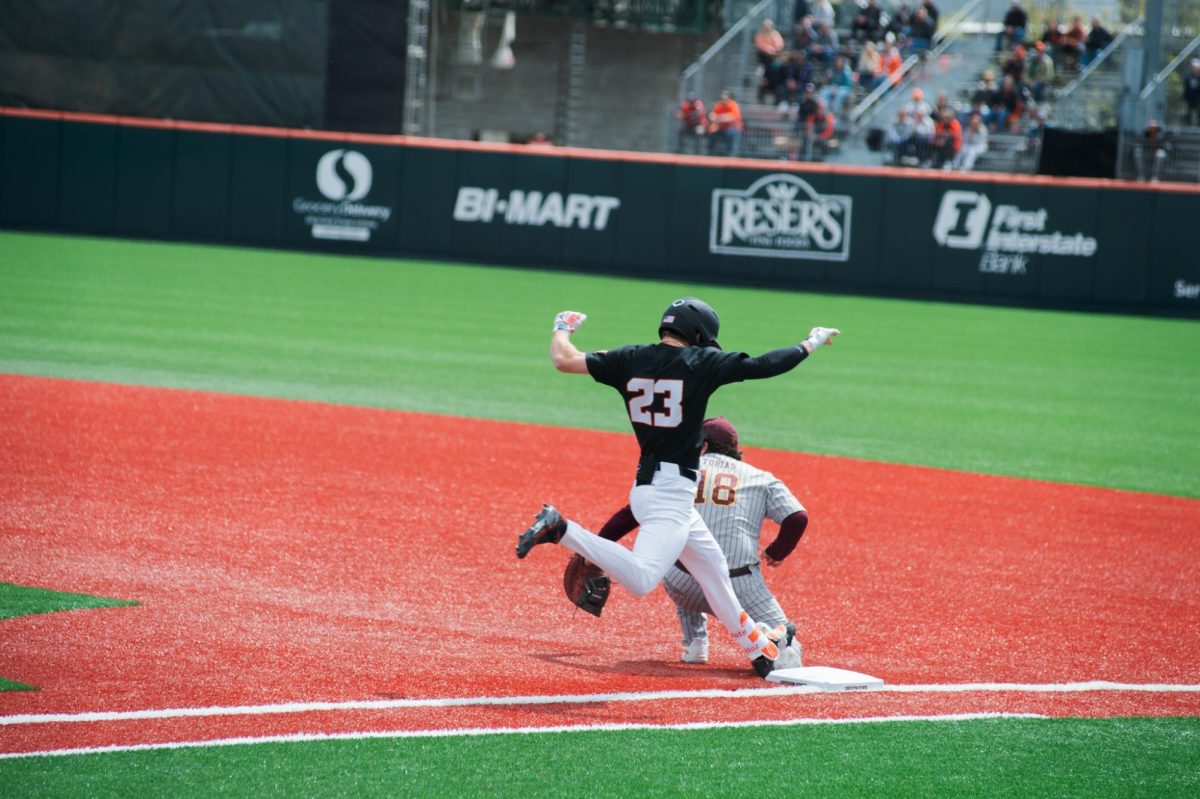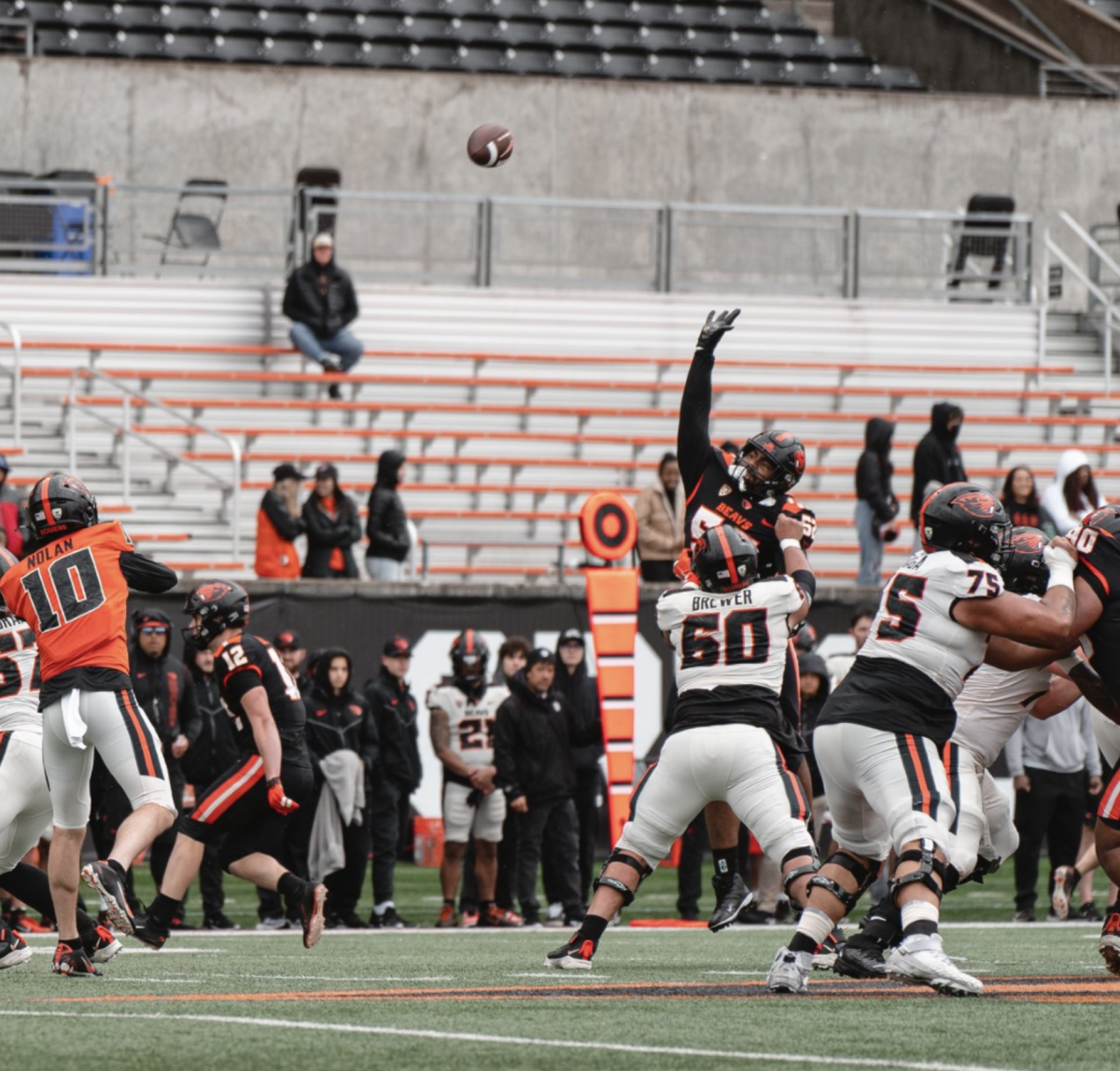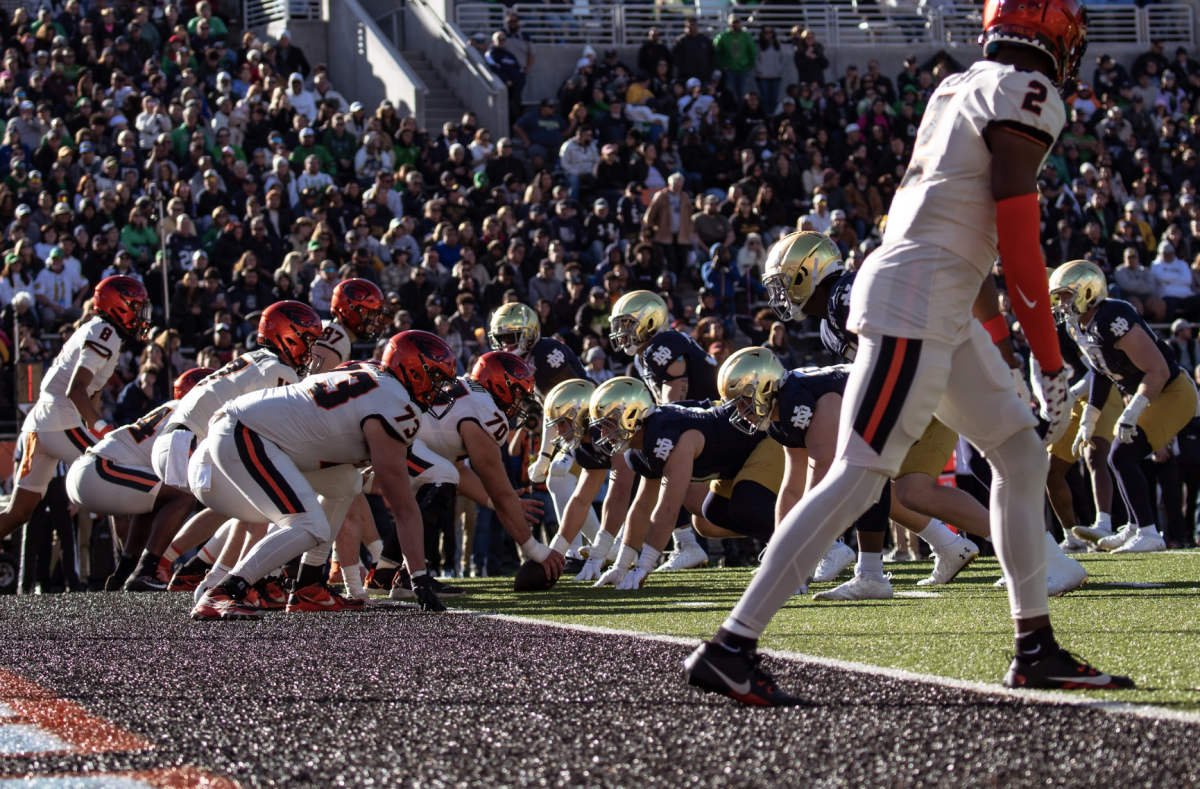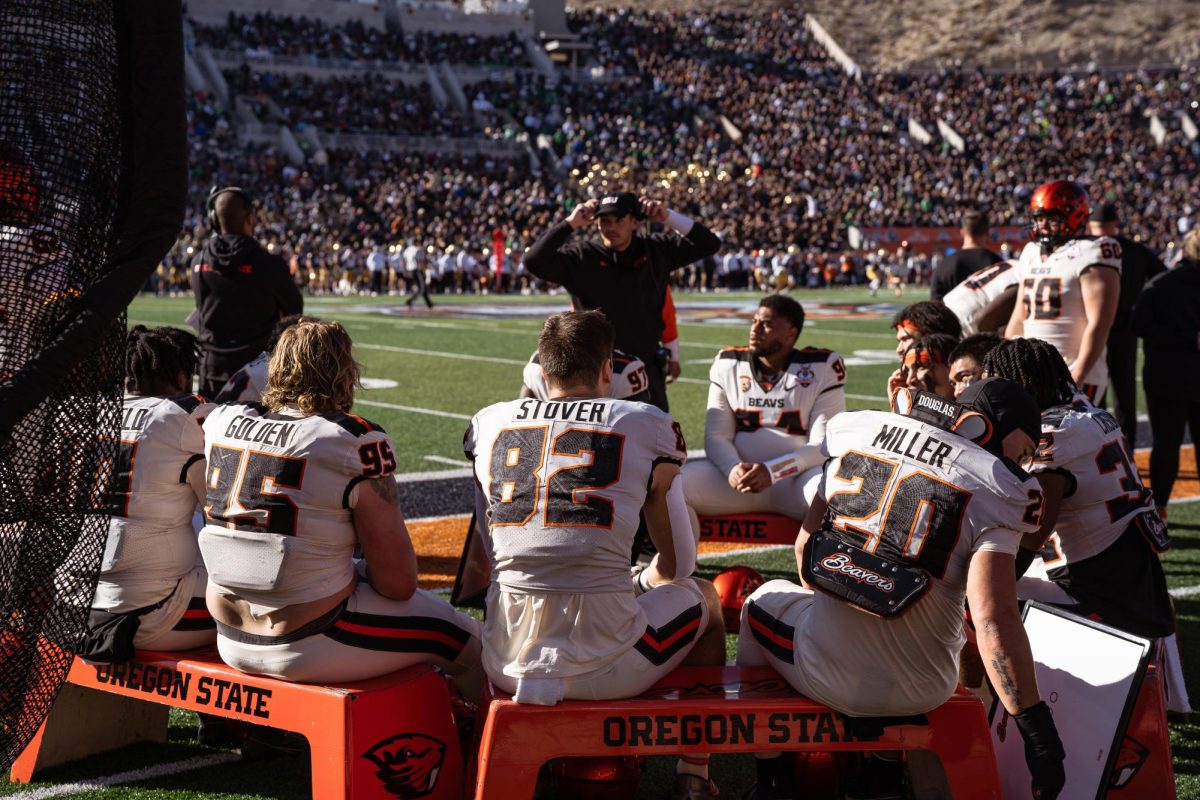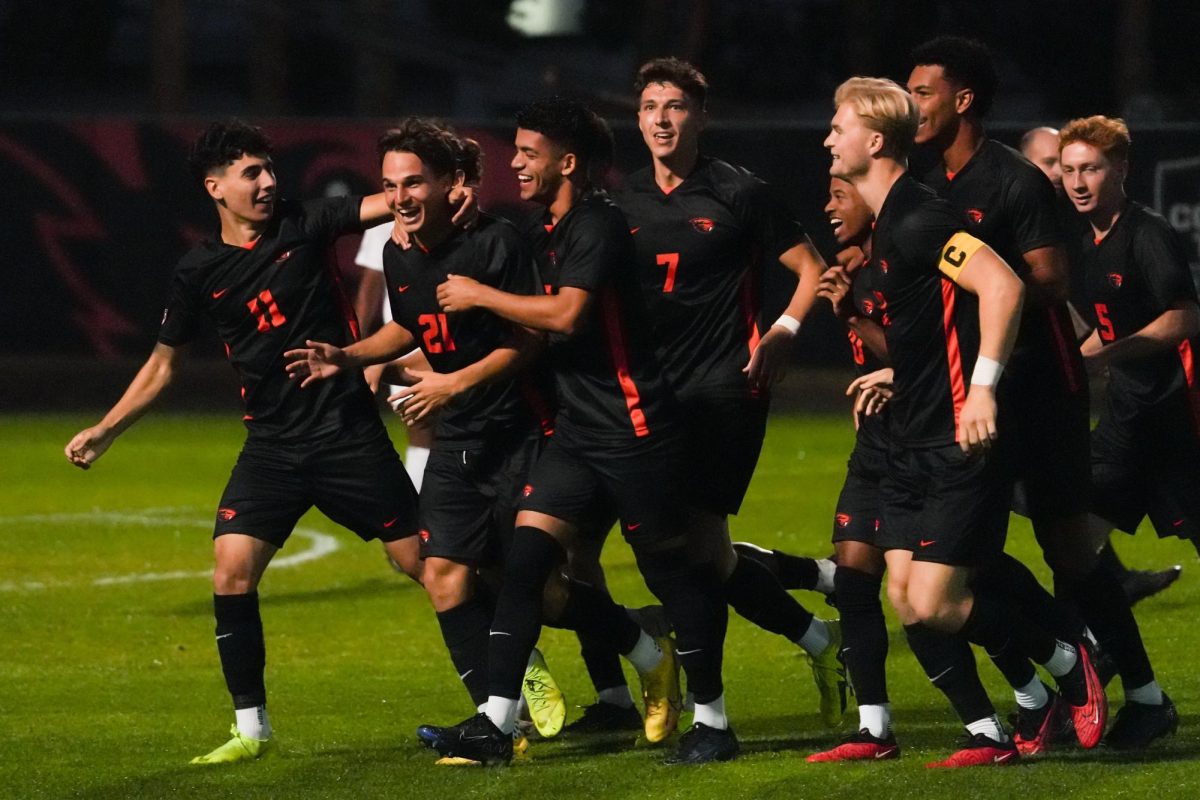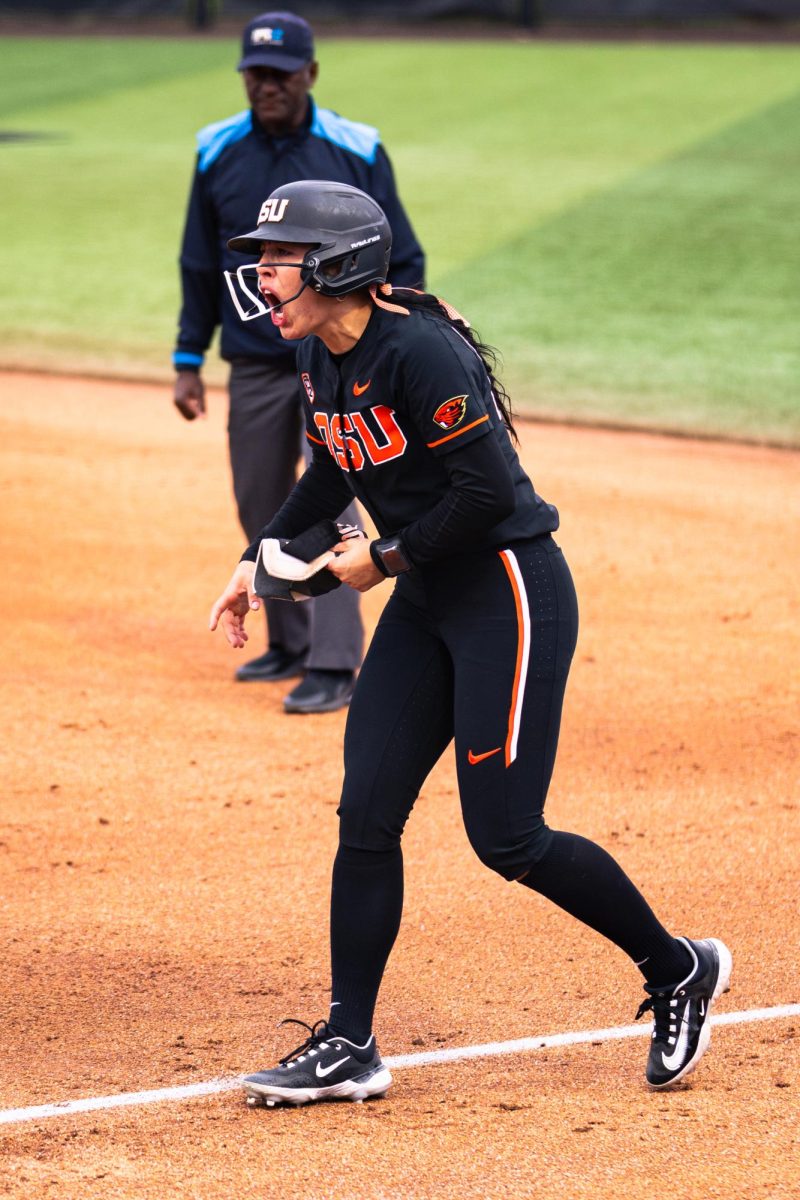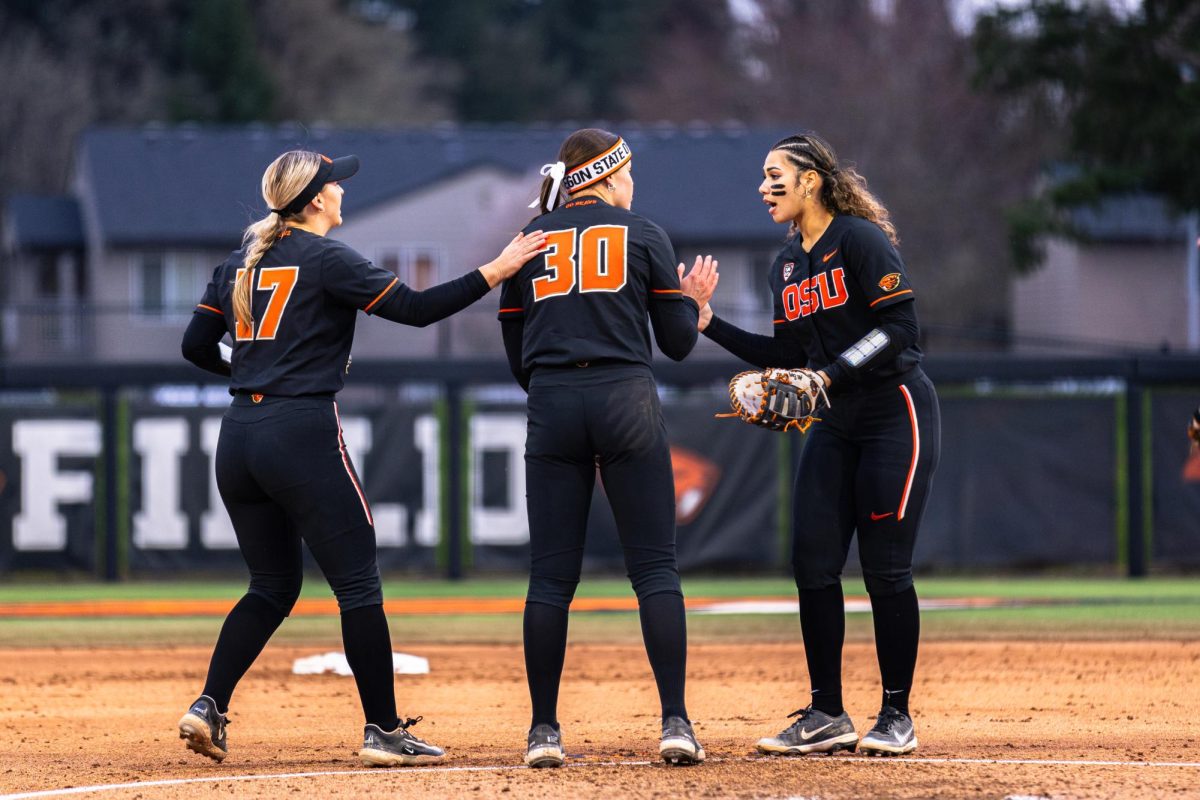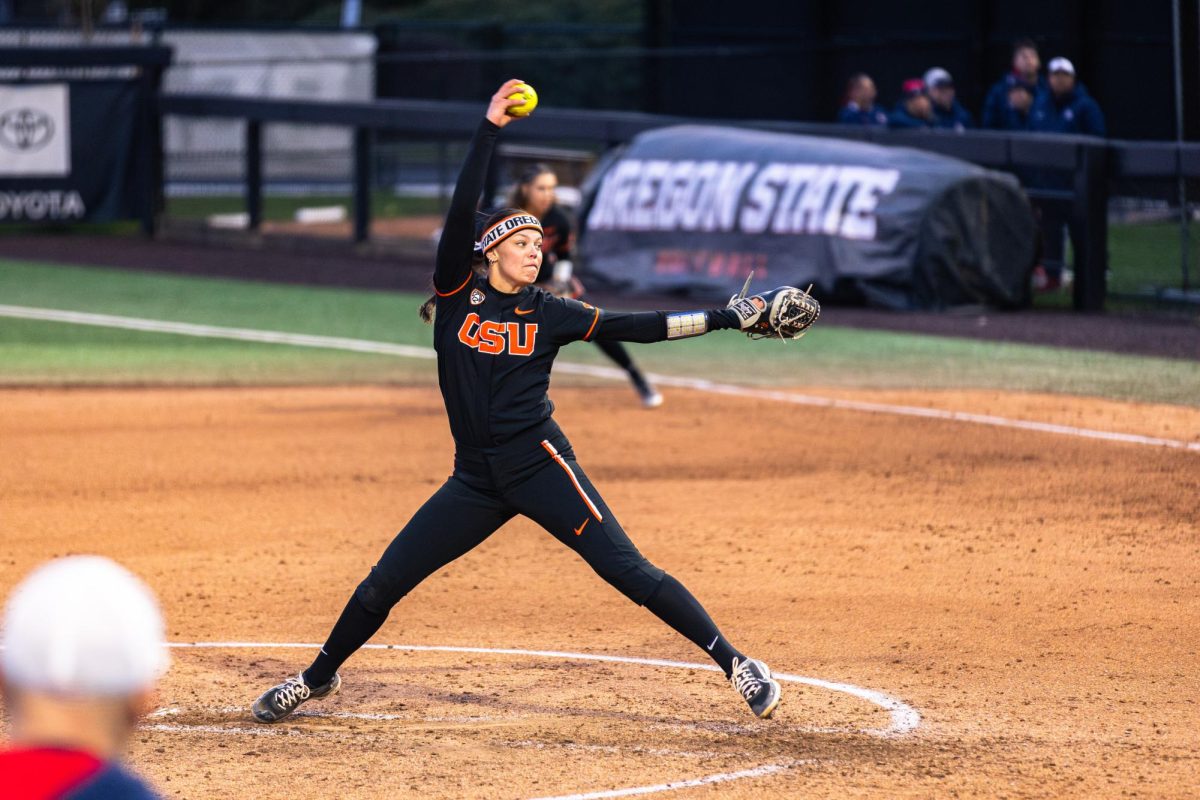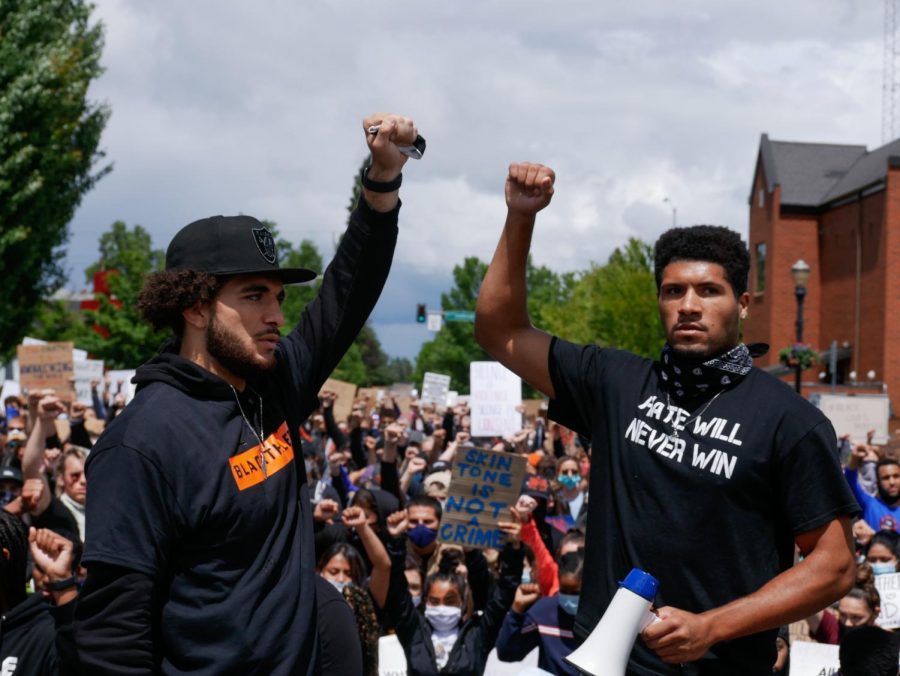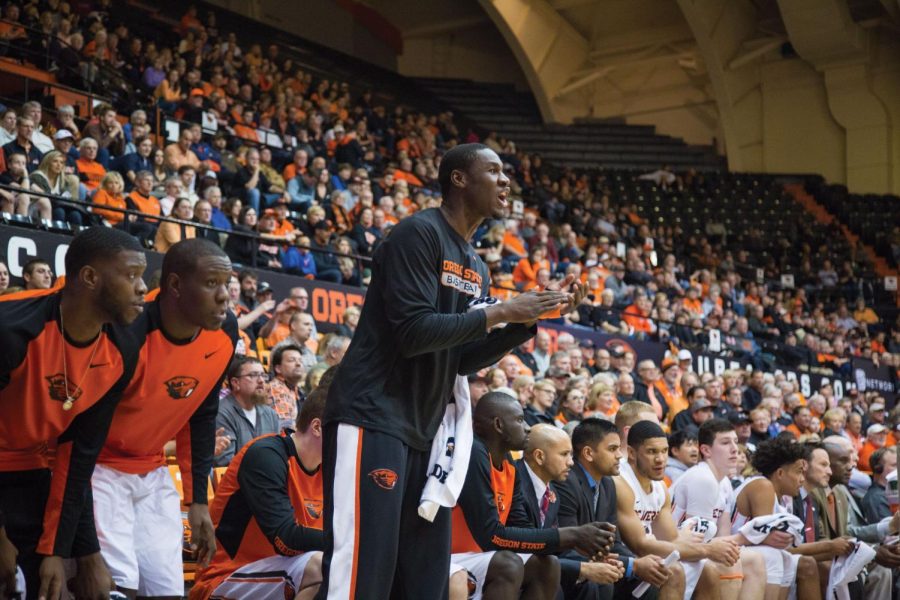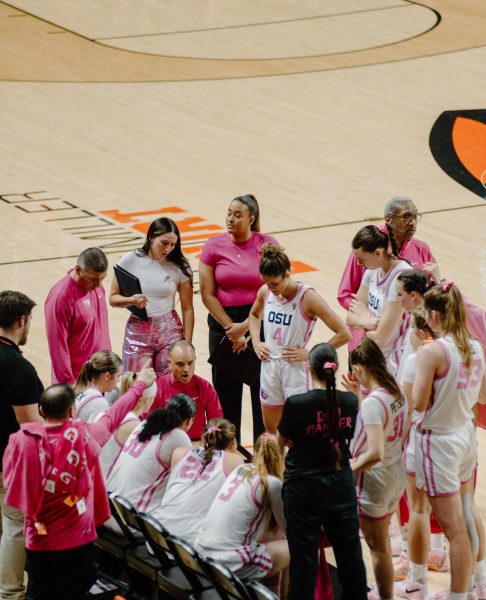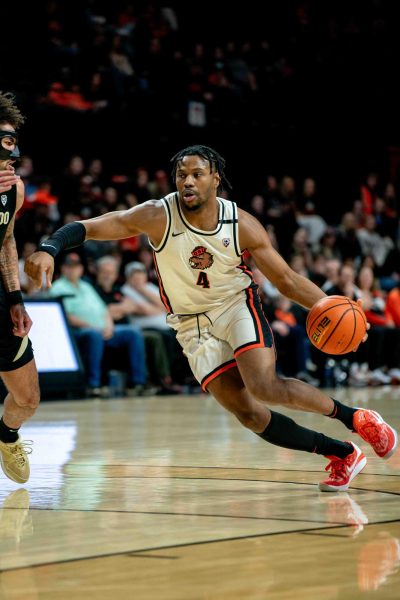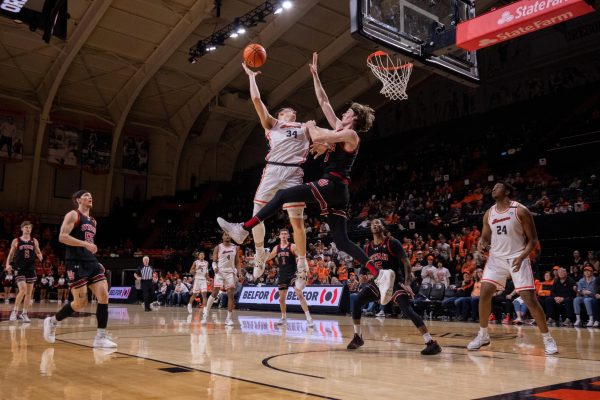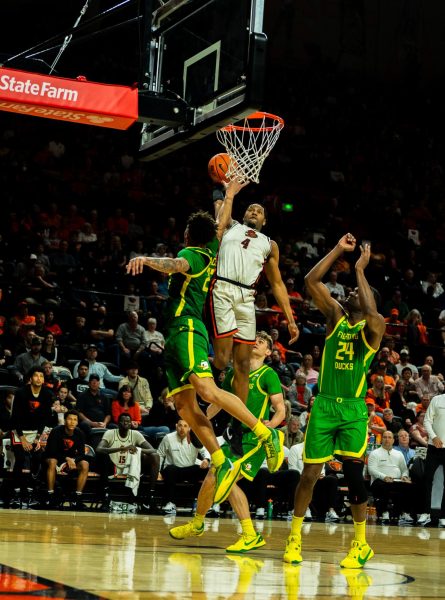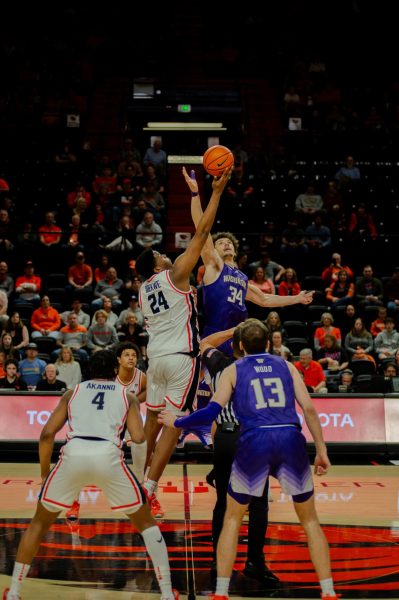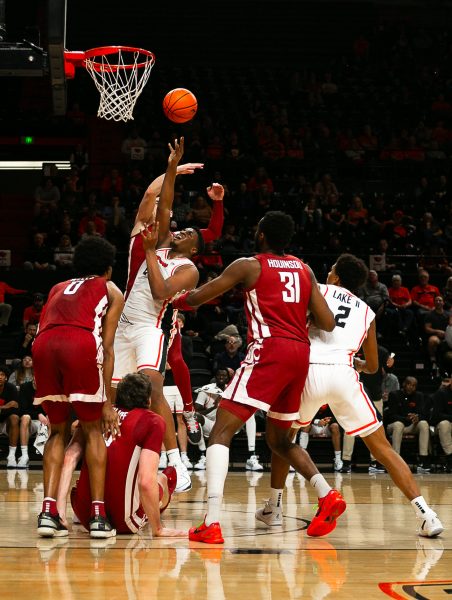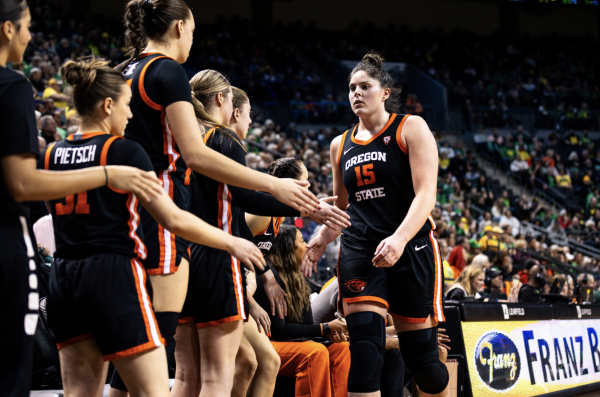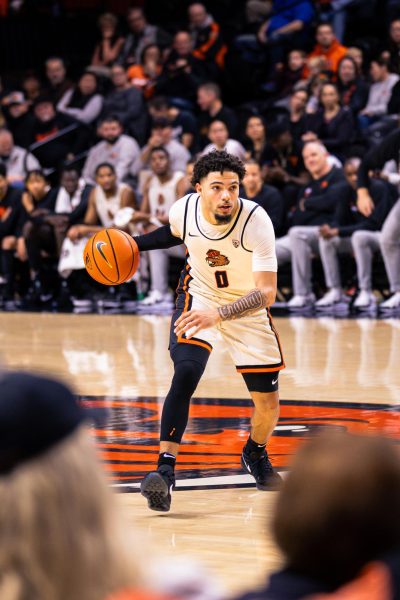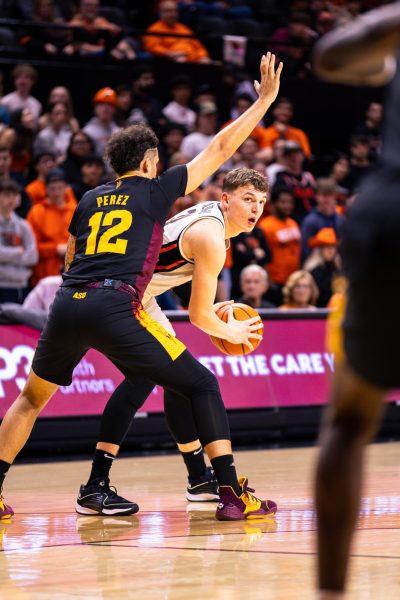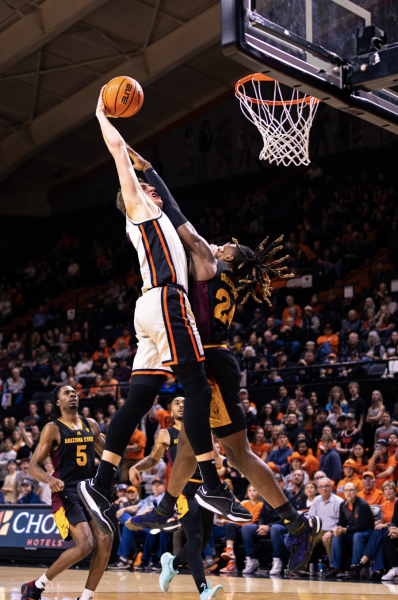Revival: round two for Daniel Gomis
December 4, 2015
Gomis wants one last chance to play after yet another injury
Daniel Gomis had already been through more injuries than most people could handle: two leg surgeries, a shoulder issue and a broken nose, to name a few. Last year, though, he finally found hope as a junior in his most healthy season at OSU.
A “revival,” he called it. It seemed like a climactic rise in an injury-ridden career, with a strong junior season heightening hopes for his last year.
Then came Oct. 26, just 10 days before the exhibition opener of Gomis’ senior season, when history repeated itself. While diving for a loose ball in practice, Gomis was inadvertently kicked and he broke a bone in his left hand.
His reaction? Laughter. What he called the injury? A blessing.
“I was just sitting there laughing when I found out it happened,” Gomis said. “It’s unbelievable when you think about it. Diving for a loose ball and getting kicked, and your hand is broken. But I take that as a blessing. Just try to make the most of it.”
If injuries are blessings, Gomis should be the most grateful person on the planet. Shortly before arriving at OSU, he broke his leg in his native Senegal in 2011 and had a metal rod inserted. He redshirted his first year and was able to practice after a lengthy rehab process, but another leg injury required the metal rod to be removed. He made his debut in 2013 but was not 100 percent healthy. Then, a shoulder injury made him miss time early last season and he broke his nose Feb. 21.
Gomis is now close to returning from the hand injury, but the Senegalese forward unsurprisingly has spent a large chunk of his career in anguish both physically and mentally.
“I got to the point where I didn’t know if I was ever going to be full strength, come back and play the way I used to,” he said of the leg injuries. “I was out for two years. It really took a toll on my head. Mentally I wasn’t there — I was thinking, ‘I don’t know if I can do this anymore.’”
“His body just failed him,” added senior forward Jarmal Reid. “If I had some of the injuries he had, I know I would have called it a wrap after last year.”
Gomis had such a tremendous turnaround last season that it helped alleviate his questions about leaving OSU. The 6-foot-10 forward already graduated last spring and considered playing professional ball after his junior year, in part to provide financial aid to his family back in Senegal. But, a conversation with head coach Wayne Tinkle after the season helped solidify Gomis’ commitment to building OSU’s program and establishing deeper relationships with teammates.
“After last season, I had a really good talk with coach Tinkle. I basically told him that I had one of my better years and I had so much fun,” Gomis said. “So I ended up making the decision of coming back for one more season.”
“The big thing with Daniel is he’s a great ambassador for the student-athlete we want to have,” added Tinkle. “He’s so positive, gets his classwork done at a high level and represents us well in the community. That’s what we want the Oregon State men’s basketball team to consist of is guys like that.”
There is no shortage of examples of the impact Gomis has made in his four-plus years at OSU.
When walk-on Brian Boswell joined the team last year, Gomis helped the 6-foot-8 forward with defensive transitions and post positioning. Freshman guard Kendal Manuel, who spent part of his childhood in Mozambique and is out this season with a broken leg, can look to Gomis to see his transition from Africa and his return from injury. Reid, who also was sidelined early this year with an injury, needed a boost from Gomis two years ago when his playing time dipped as a sophomore.
“I got down on myself. He was always there, uplifting me, especially in practice telling me to keep going and keep my head up,” Reid said. “He’s probably one of the best teammates I’ve had ever.”
Maybe the player who Gomis has influenced the most is junior center Cheikh N’Diaye, who grew up 40 miles from Gomis in Dakar, Senegal and is two years younger than Gomis. N’Diaye says he wouldn’t be in Corvallis if it wasn’t for Gomis.
As a junior in high school, N’Diaye heard about a Senegalese athlete at OSU who wasn’t playing because of injury. When N’Diaye visited Corvallis, Gomis hosted the 7-footer and the two talked about the basketball program, academics and everything else. N’Diaye loved the trip so much, he decided to make it his only college visit.
“We’re brothers,” N’Diaye said of the relationship. “I decided to join Oregon State because of him so I’d have somebody from back home that I can learn from.”
When Gomis was undecided about returning to OSU for his senior year, N’Diaye was one of the friends he looked to most for advice. N’Diaye didn’t want to pressure Gomis into staying, but his ultimate decision was a relief for N’Diaye.
“I told him, ‘It’s on you to decide. Whatever you do is probably for the best,’” N’Diaye said. “And he ended up staying and I’m glad. I didn’t want to force him to stay or go.”
For all of the encouragement Gomis has doled out to teammates, he receives a wealth of praise in return. It’s rare for Gomis’ name to come up without a story of a player who needed a kind word or advice from someone with experience of a similar affliction. Maybe that’s why Gomis had to endure his injuries; “everything happens for a reason,” after all, were his telling words after he broke his hand. Soon, Gomis will again extend his impact onto the court, especially with one year of eligibility left and an OSU team looking to make a postseason run. Gomis, who was nominated Wednesday for the National Association of Basketball Coaches Good Works Team, is also tenth in OSU history with 72 career blocks.
“He means a lot to us, just with his leadership,” Tinkle said. “He’s just one of the best kids I’ve ever had in any of our teams.”
“I will remember this program for real,” Gomis said. “This is my family. I wake up and see these guys every day. The only thing I can do is be positive with them, try to help them in any aspect I can. I know when I’m down, they will be there to pick me up.”
“I’m so thankful to be here and playing basketball, because there are people out there who would do kill themselves to be here. Sometimes I’m still able to play. I can’t really complain. I just have to be thankful and think of the people who are going through tougher things than me.”


